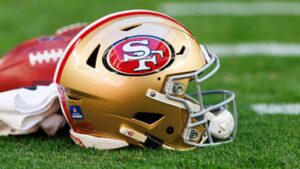The San Francisco 49ers: A Potential Minority Stake Sale and the Future of NFL Investments
At Extreme Investor Network, we believe in staying ahead of the game when it comes to significant developments in the world of sports and business. One of the most intriguing stories currently emerging is that the San Francisco 49ers may soon be looking to sell a minority stake in their franchise. This move is poised to align them with a growing trend in the National Football League (NFL), where franchise owners are increasingly exploring private equity investments.
A Shift in NFL Ownership Dynamics
Recent reports suggest that the 49ers are contemplating a sale of up to 10% of their franchise to private equity firms or affluent individuals and families. This shift comes on the heels of a pivotal NFL vote that allows teams to invite private equity investments of up to 10%. With franchises like the Miami Dolphins and Buffalo Bills already striking deals with investment firms, the trend is paving the way for healthier financial ecosystems within NFL teams.
Moreover, the New York Giants have also announced their intention to explore a minority stake sale. This may signal a systemic change where other franchises could follow suit, driving valuations higher across the board. The 49ers, in particular, have their sights set on a franchise valuation near $9 billion. Though CNBC’s latest valuation stands at $7.4 billion, the ambitious goal reflects the 49ers’ desire to capitalize on their market position and wealth of assets.
The Driving Factors Behind This Trend
Several factors contribute to this recent surge in minority stake sales among NFL franchises. First and foremost, liquidity is a common need among ownership groups, providing family members with quick access to capital. Additionally, the revenue generated from these sales can be funneled back into substantial investments, such as stadium repairs or enhancing team facilities, which are crucial for maintaining competitive advantage.
But what about the sales themselves? Deals involving private equity often come with specific stipulations, such as no voting rights for the investors. However, private equity firms have shown a willingness to pay premium prices for minority stakes, drawn by the accompanying benefits. For example, the allure of exclusive experiences, such as owner’s box seating, provides tangible incentives for high-profile investors looking to entertain clients or reward employees.
The Legacy of Success and Future Aspirations
The San Francisco 49ers are not only one of the most iconic teams in NFL history but also possess a track record of recent success on the field. Ownership is not just confined to American football; the parent company, 49ers Enterprises, intriguingly owns the English football club Leeds United, showcasing the diverse business interests of the York family. This diversified ownership model can bring additional value to investors eager to tap into multiple sporting markets.
Jed York, the team’s CEO, leads the franchise’s vision in intertwining sports with sound business strategy. As the landscape evolves, the 49ers are strategically positioned to leverage their brand, performance, and market reach to attract capable investors.
The Bottom Line
As the NFL landscape continues to change and evolve, with franchises exploring private equity investments, the potential sale of a minority stake by the San Francisco 49ers is a development worth following. For those interested in the intersection of sports and investment, this trend serves as an ongoing case study in leveraging financial strategies for optimal franchise performance.
Stay tuned to Extreme Investor Network for live updates and expert analysis as we dig deeper into this fascinating development and what it means for the future of the NFL and the broader sports investment landscape.

